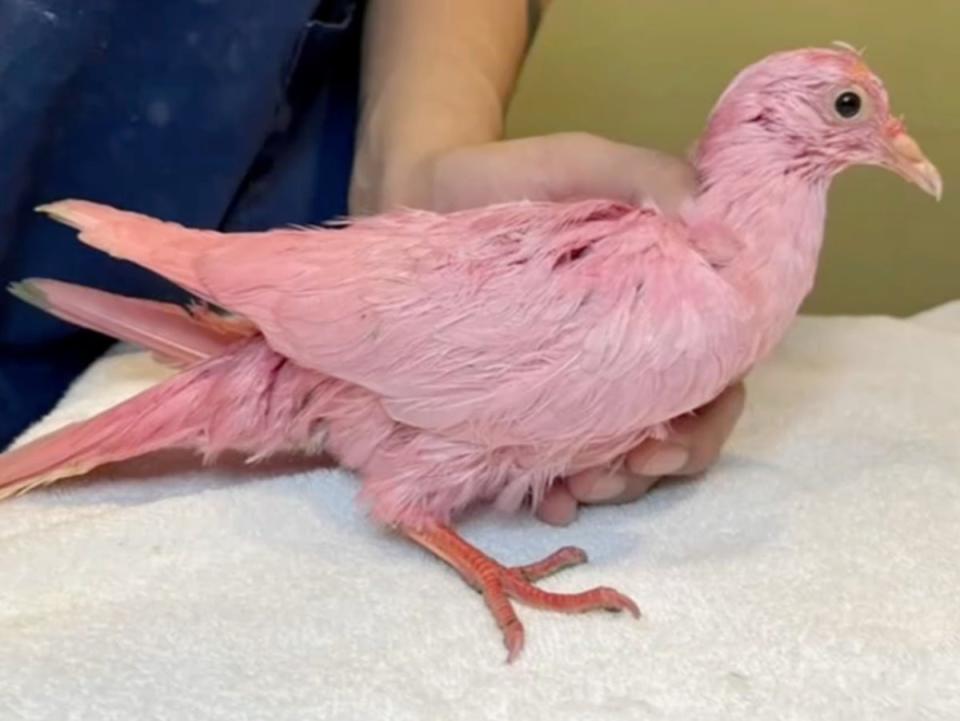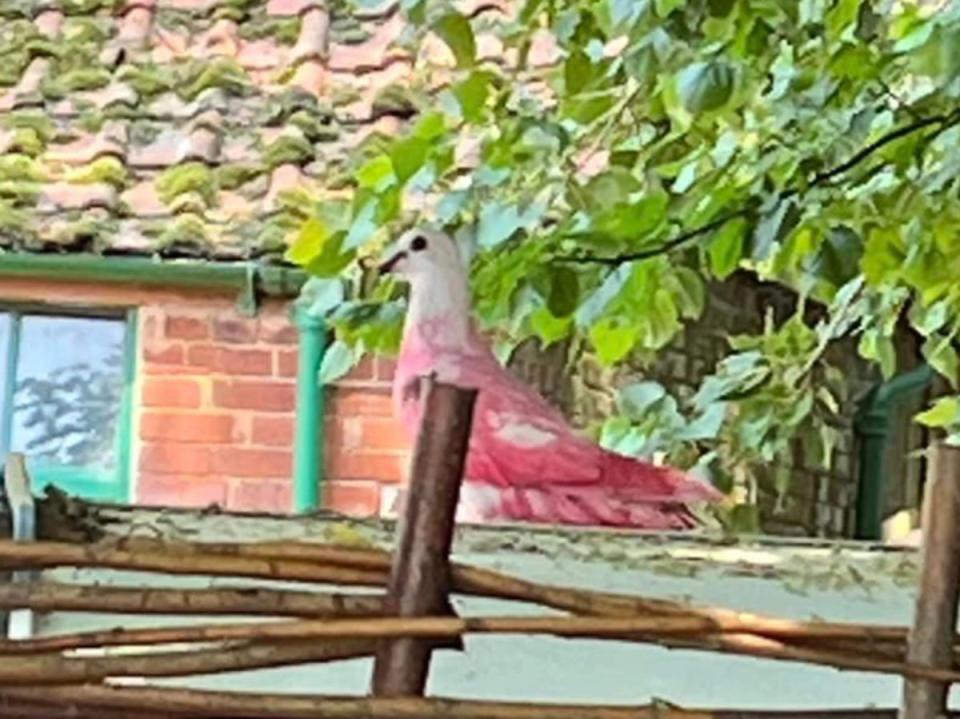RSPCA warns parents over gender reveal party craze that is killing birds

The RSPCA has issued a warning about a new gender reveal craze that is harming birds.
Parents-to-be have been using pigeons dyed pink or blue to reveal the gender of their unborn child, but one animal hospital said the trend may have contributed to the death of a bird last month.
Leicestershire Wildlife Hospital shared a post on Facebook on an injured pigeon it received that had been dyed pink. A spokesperson urged people to “think before you follow these social media trends”.

“The pigeon was most likely used for a gender reveal party and is absolutely shocking,” they added. “It has become a horrendous trend and we are urging you to spread the message about the effects that this can have. Quite simply, it is an act of cruelty and is no way to celebrate the gender of your baby.”
Have you been affected by this? Email alex.ross@independent.co.uk
The spokesperson said that the dye made the birds an easier target for predators, while toxins could cause them to become unwell if swallowed or inhaled. They added that due to the birds being bred in captivity, it was likely they also had no sense of how to survive in the wild.
“This pigeon sadly didn’t make it, he was incredibly malnourished, dehydrated and had significant wounds caused by the cat,” they added.

Exmouth farmers Andrew and Kate Lamont spotted a pink pigeon on their property, and shared the picture in their local Facebook group.
Mrs Lamont told The Independent: “My initial thought was what had happened to the bird to make it go pink.
“We shared the picture and did a bit of a search and found out about these parties. It is not something we would encourage people to do, obviously. I was surprised, and haven’t seen the bird since.”
In the US last year, a dyed-pink pigeon named Flamingo died after being found wandering through Madison Square Park in Manhattan.
An RSPCA spokesperson added: “The majority of us want the best for animals, and to treat them with respect - so intentionally painting a pigeon’s feathers is unacceptable as it could cause health problems, impair their ability to fly and make them more vulnerable to predators.
“In addition, dye and paints can be toxic to birds and other animals, and they would be likely to try to clean any such substance from their coat or feathers which could result in them swallowing it.
“From time to time we do hear anecdotally about incidents involving animals being affected in this way - and sadly we fear social media trends could be fuelling this.”

